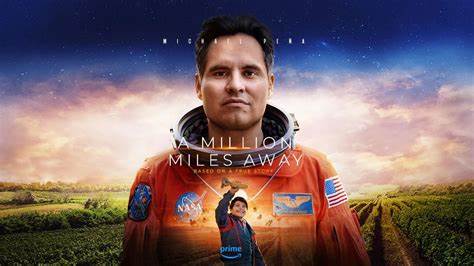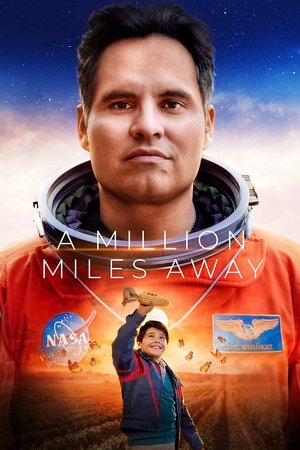“A Million Miles Away” is a heartening film based on an incredible true story, presented in a genuinely inspiring manner. It chronicles the remarkable journey of José Hernández, a Mexican-American farmworker turned astronaut, who defied immense odds to reach the stars. The film is significant for its representation and serves as a testament to the power of determination.
However, despite the compelling subject matter, “A Million Miles Away” opts for a safe and conventional approach. Directed and co-written by Alejandra Márquez Abella, the portrayal of José Hernández, played with enthusiasm by Michael Peña, remains consistently positive and unwavering throughout the two-hour runtime.
This perhaps stems from the film’s basis on Hernández’s memoir, which is aptly titled “Inspiring Story.” While this approach aims to make the movie accessible to a broad, family-friendly audience, it leaves the narrative feeling somewhat grounded and lacking in depth.
The film opens with a young José, portrayed by the charming Juanpi Monterrubio, as he and his family immigrate from Michoacán, Mexico, to California in the late 1960s. Abella skillfully introduces the family and their daily struggles as they work in fields in towns like Stockton and Salinas. Despite facing taunts from schoolmates due to his accent, José’s brilliance in mathematics is evident. His compassionate teacher, portrayed touchingly by Michelle Krusiec, recognizes his potential and encourages his family to stay in the area.
From there, “A Million Miles Away” follows the typical biopic trajectory. We witness José’s journey from graduating with an engineering degree from the University of the Pacific to meeting his future wife, Rosa Salazar, who becomes the anchor of the family. He climbs the ranks as an engineer at Lawrence Livermore National Laboratory, battling subtle racism from his colleagues. His persistent applications to the NASA space program are repeatedly met with rejection until the year he finally achieves his dream.
Salazar shines as Adela, the film’s emotional core, delivering an authentic performance with a touch of humor. However, Michael Peña’s portrayal of Hernández over several decades is somewhat distracting, given the actor’s age. The film misses the mark in convincingly depicting Hernández’s transformation from a recent college graduate to an astronaut, lacking effective makeup and hair adjustments.
“A Million Miles Away” briefly hints at the theme of assimilation as José grapples with fitting into a predominantly white environment, showcasing the strength he derives from his heritage. This message holds universal significance, especially for recent immigrants, but the film fails to explore this depth further.
Instead, the film opts for multiple training montages, highlighting José’s determination and heroism. While these sequences are inspiring, they contribute to a lack of complexity in José’s character. He is portrayed as a near-saintly figure, with the only complaint being his absence due to the all-consuming nature of space preparations.
As the film approaches its defining moments, it strangely settles into a comfort zone, missing the opportunity to heighten tension and emotion. Nevertheless, if you’re in search of a heartwarming family film, “A Million Miles Away” aims for the stars, even if it falls slightly short.
The film is currently playing in select theaters and will be available for streaming on Prime Video starting September 15th.


